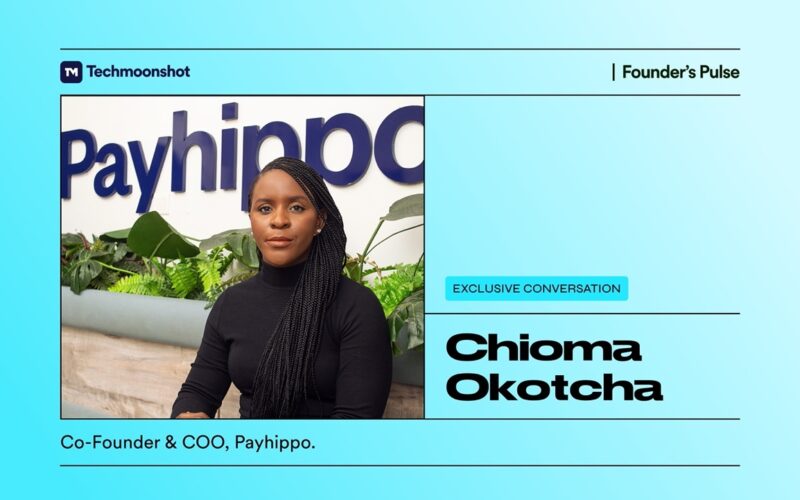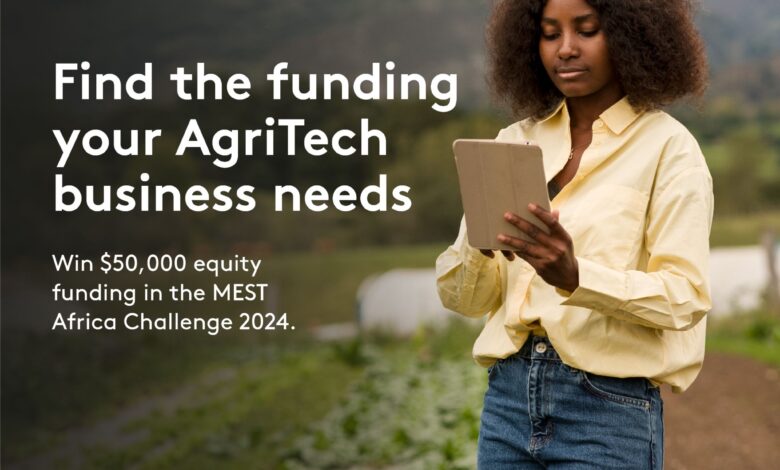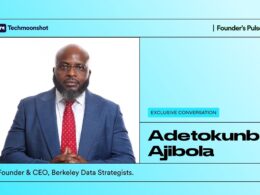Chioma Okotcha is the Co-founder and Chief Operating Officer of Payhippo, a Y Combinator 2021 company, Chioma is committed to facilitating the clean energy transition in Nigeria by providing seamless financing solutions to end-users, installers, and operators of clean energy equipment. Beyond her role at Payhippo, she serves on the board of Talent Mine Academy, a non-profit organization dedicated to delivering quality education and creating better opportunities for children in low-income communities.
A devoted coffee lover, she carries her own coffee to ensure she can always make a fresh pot, a habit that fondly connects her to her parents, who were avid tea drinkers. Her journey into tech began with an early aspiration to become a doctor, a path she eventually shifted from after realizing how deeply others’ physical pain affected her.
Excelling in science, she pursued a degree in computer science, followed by a focus on public policy at SciencesPo in Paris. Her career spans diverse experiences in finance, consulting, and development, including roles with KPMG, the Tony Elumelu Foundation, Teach for Nigeria, the Tony Blair Institute for Global Change, OECD, and the French Development Agency. Above all, she is a proud mother to an incredible 2-year-old.
In our exclusive conversation with Chioma, she highlights the unique challenges of building a startup in Africa, particularly in the fintech and clean energy sectors. She discusses the hurdles of navigating regulatory landscapes, securing financing, and building trust with customers in a market that is still developing in many ways.
Can we get to know you?
I’m co-founder and Chief Operating Officer of Payhippo. Payhippo (YC 21) is enabling clean energy transition in Nigeria. We provide seamless finance to end-users, installers and operators of clean energy equipment. I also sit on the board of Talent Mine Academy, a non-profit focused on providing quality education and better opportunities to kids in low-income communities. I’m also a mom to the most incredible 2-year old.
Tea or Coffee? Which one makes you ready to take on the world?
Coffee always. When I visit friends and family, I have my coffee in my bag to make a fresh pot. My parents were avid tea drinkers especially at night-time and I believe I do this to remember them.
Can you tell us about your journey in tech?
I always wanted to be a doctor. I talked about it non-stop throughout my childhood and in secondary school. This changed when I discovered that watching someone in physical pain really affected me quite badly. At the time, I was good at science and the next closest thing was either engineering or computer science.I studied computer science in undergrad and public policy at SciencesPo in Paris. Between both studies, I worked in finance, consulting and the development space with KPMG, Tony Elumelu Foundation, Teach for Nigeria, Tony Blair Institute for Global Change, OECD and the French Development Agency.
Interestingly, I was recently reading an old note where I said ‘I wanted to contribute to how tech shapes Africa’s future’. I wrote this in 2004. Fast forward to 2014 and I’m working on a government policy project around a public private partnership on microfinance for low-income housing microfinance. The learnings from this project will be the beginnings of Payhippo.
Did you have any role models or mentors who influenced your career path?
I had more life mentors than I’d say careers mentors. I’ve definitely had women that inspired me greatly. In my early years before I knew what a mentor was, my mom, Elizabeth and my grandma, Grace, had an incredible impact in my life.Two profound entrepreneurs. In Nigeria, I love Ngozi Okonjo-Iweala and I’ve always admired Odun Eweniyi. Globally, I think highly of Emma Grede, Zim Flores, Sara Blakey and Michelle Obama – for consistency, grit and balance.
Right now, I have a core team of advisors who are role models on a daily basis offering support on building Payhippo and balancing other parts of my life, which is just as crucial.
Can you describe a typical day in your role as a co-founder and COO at payhippo?
I kick off my day with a prayer, coffee and emails, a lot of these. Then I check slack and then whatsapp. I work on what’s urgent and then create a to-do list. During school term, I drive my toddler to playgroup. Then, I have a sprint call with my CEO to make sure we’re still alive and kicking. Since Payhippo has most of the team working remotely, I jump on a call with operations, marketing, customer success, people team, finance and engineering in the first hours of the day. Somewhere in the middle of the day, there may be a big or a little fire to put out alongside lunch and in-person meeting. Then it’s calls with investors and potential pitch presentations, if needed.
I usually block out 2-3 hours to brainstorm our vision and measure how far or close we are to our goals using our data and numbers. I wrap up the day checking my list and moving unattended tasks to the next day. I’d like to say it’s a hard stop at 5pm but on some days, it carries on till much later after dinner. I’m reading the four-day-week approach and it’s a much commendable way to be an entrepreneur to avoid burnout.
Can you tell us about how Payhippo idea started?
Shortly after working on a microfinance project and supporting the launch of a non-profit in Lagos, I met my co-founder while playing flag football in Lagos. We both had seen the challenges of accessing credit for SMEs in the Nigerian ecosystem and decided to build a credit-engine to make it seamless and automated. At the time, It was difficult to profile and SMEs credit worthiness and make a decision in a few hours. Looking back, it’s incredible how quickly we went from idea to execution and then scale within a year.
Building is hard anywhere in the world but building in Africa is a lot harder. What is the biggest challenge you’re facing as a founder right now?
Building anything takes a bucket of grit and resilience.
Right now, the biggest challenge is ‘brain drain’. There are so many brilliant minds leaving Nigeria, opening up gaps in entry level roles and all the way to senior management. We’ve been speaking about this for many years but it’s increased exponentially since the lockdown in 2020, faster than we can train to fill the gaps. As a founder of a startup, you’re already working extremely hard to compete for talent with more established companies and now, it’s so much worse. Presently, tech and non-tech talent are relocating to get paid in FX and putting the money aside, we’re losing knowledge that should be passed on within the ecosystem.
What are some of the emerging trends you see shaping the future of Clean Energy Financing in Africa?
We really need to create solutions that drive clean energy on the continent. It’s no longer a fancy conversation but one that’s extremely essential. Electricity is fundamental to Africa, if we are to reduce poverty and increase economic growth. The private sector – MSMEs and big corporations alike – need electricity to generate jobs and drive innovation and industrial development. From an impact lens, there’s the added benefits of reducing air pollution, improving productivity and health outcomes.
The sustainable development goals speak on universal energy access by 2030. We have 6 years to hit that goal and we are far from it, if we are being realistic.With the recent changes in the Nigeria energy space as well as global concerns from climate change, some of the trends and focus areas we’re going to see in this space include an increased need for electricity, clean energy finance solutions and unlocking carbon markets.
Demand for energy services in Nigeria is going to grow rapidly. Businesses, particularly SMEs who are the backbone of our economy require constant access. With remote work, we’re also seeing a demand for increased household supply. The cheapest renewable source, at the moment, is solar. However, the transition is not cheap. We need to keep that in mind. The cost of capital is an important factor since many clean energy transitions and projects require high upfront spending. The cost of capital for utility-scale energy projects in Africa is two to three times higher than in advanced economies and is often higher for smaller projects that have fewer capital providers available. This can act as a major barrier to scaling up.
Carbon markets are almost completely new on the continent and we’re going to see an interest in providing access to these markets for clean energy providers. This is where Payhippo is driving innovation to ensure the effectiveness of the market by building the right frameworks.
What is Payhippo’s recent milestone you’re excited about?
We recently pivoted after nearly five years since we launched. When you launch your startup, you hear and read a lot about potential failures and pivots but you never imagine what that means in reality. In our first five years, we disbursed over $70m in loans to small and medium sized businesses impacting the economy.
In 2023, we saw an opportunity to create a solution in the economy when price hikes for the grid and traditional fuel sources soared over the past year. While working with SMEs, we discovered that energy expenses can make up at least 35% of their operating costs. Since then, we’ve pivoted to cleantech, financing clean energy transition, piloting a novel carbon financing approach, providing near 0% interest rate finance through carbon market access.
If you could learn and master a skill instantly right now, what would that be and why?
A magic wand to move to profitability in an instant or how to acquire 10 million customers in 1 day. On a more serious note, there are so many skills that I’ve learnt and continue to perfect since becoming an entrepreneur. On a more technical level, I want to continue to expand my knowledge on data analytics for performance and growth. As a founder, I pitch investors quite often and I’ve always wanted to sit on the VC side and evaluate my business from that lens. So maybe investor skills would be great too.
As a founder what qualities do you look for when building your team?
In the early days of being a founder, you are the company and company is you. If there’s a problem to be solved, you immediately jump into ‘fix it mode’ thinking of yourself as being the best person to do this. Unfortunately, this isn’t sustainable. As a founder, you’ll need to build a team that is just as passionate about the vision and is equally capable. A start-up environment is more dynamic and so in the early days, I focused on self-starters with a growth mindset, self and peer feedback, and a desire to learn, fail and learn again. As we’ve grown, the need for some specialized hires become apparent. However, we still focus on those soft skills that are essential to the success of the company.
If you could go back in time and give your younger self one piece of career advice, what would it be?
Keep going. Failure is part of the journey of life. Whatever your hands find, do it with all the passion and grit that you have. Enjoy the ride.
Where do you see Payhippo in the next 5 years?
Scaling across Africa providing clean energy financing.
What piece of tech gadget you can’t do without?
My mobile phone, unfortunately. It has everything I need on it. Emails, slack, business apps, toddler sleep camera, payhippo app, just to name a few.
What’s your favorite way to unwind after a busy week at work?
In the past, I spent a lot of time being really active with flag football and the gym. I co-managed a football team, The Lionhearts, and thoroughly enjoyed it. Sadly, I dropped these activities in the heat of building a business but getting back to the routine of being outdoors and moving with football and tennis.
Finally, Can you share a book, podcast, or resource that has significantly influenced your marketing philosophy?
A podcast that I thoroughly enjoy listening to is “Stuff you should know” by Josh Clark and Charles Bryant. It covers everything from Chaos theory to “how timber works”. I highly recommend it if you like to know how things work.
It’s a pleasure talking to you, Chioma.
Thank you for having me.













Comments 1